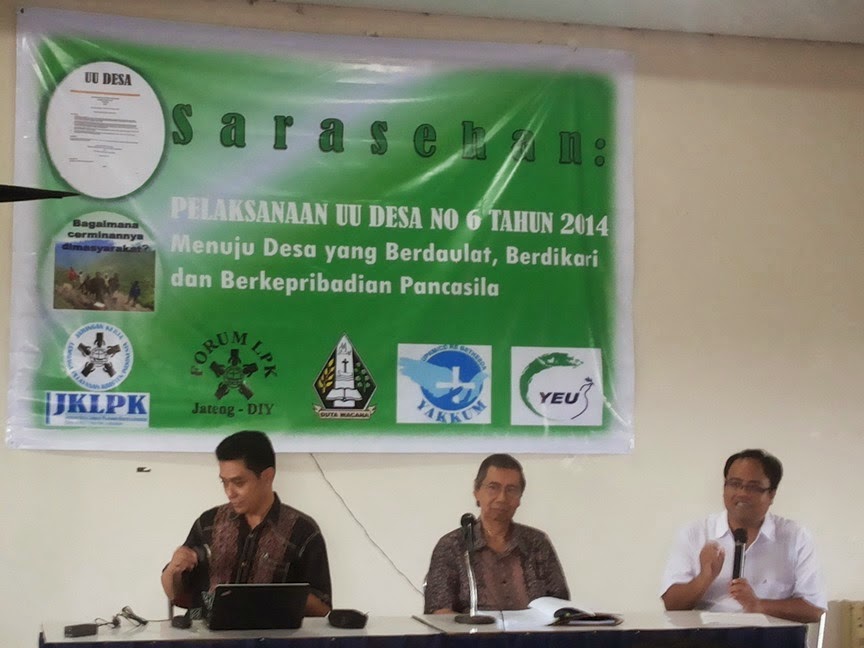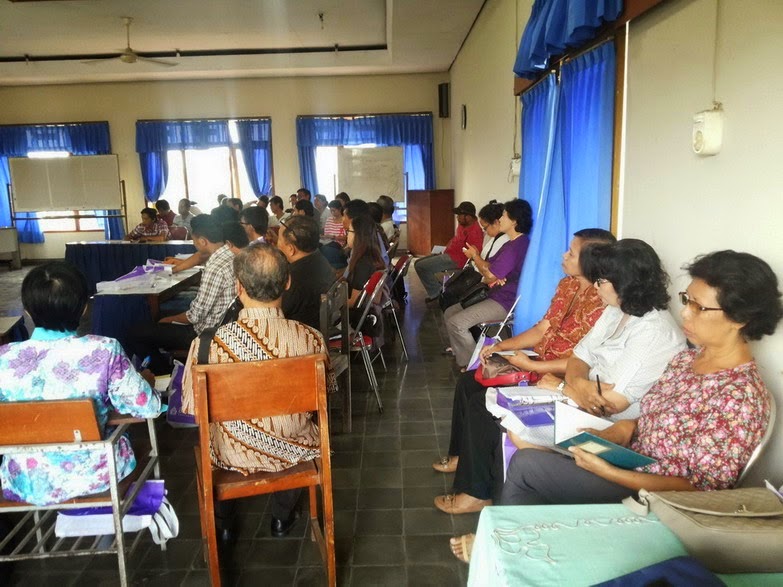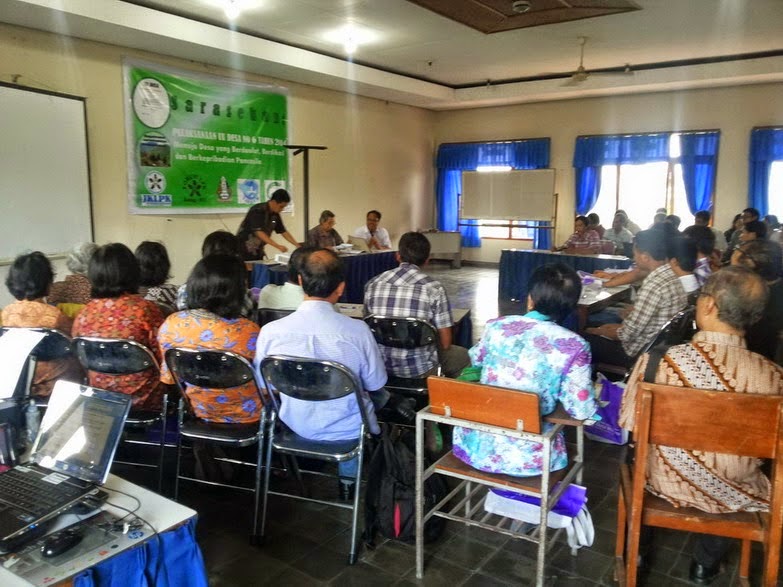Tuesday, 8 July 2014
by adminstube
by adminstube
IMPLEMENTATION OF THE REGULATION NO. 6. 2014:
Heading toward a sovereign independent village
having Pancasila-based character
After a long exhausting struggle and many bustling demonstrations that full fills public space with a boycott threat to the implementation of government strategic programs, finally the government and parliament approved an assertion of the village head and village officials to formally issue a regulation no. 6 - 2014 about Village. Then, this law is called a Village Act, replacing the Government Regulation No. 72 - 2005 about Village which is not satisfying the village head and village officials.
On Saturday, July 5, 2014, Community Development Bethesda in collaboration with some NGOs under JKLPK such as YAKKUM, LPK Forum Central Java-Yogyakarta, Duta Wacana Christian University and YEU, organized a workshop with a theme of "Implementation of the Regulation No. 6-2014: Heading toward a sovereign independent village having Pancasila-based character" with two facilitators, that is, Prof. Dr. Wuryadi, a member of Education Board of Yogyakarta Province, and Krisdyatmiko the Director of IRE Yogyakarta (Institute for Research and Empowerment) and lecturer of PSDK Gadjah Mada University. Stube-HEMAT Yogyakarta sent Sofiya Atalia and Sarloce Apang to attend the workshop and to learn the Village Act which will be implemented in 72,944 villages in Indonesia.
The event was opened by singing national anthem 'Indonesia Raya' and welcome address delivery from a JKLPK representative. Sri Bayu Selaadji (CD Bethesda) as moderator guided the presentation of Prof. Dr. Wuryadi discussing chapter 3 of the regulation, which is based on recognition, subsidiarity, diversity, unity, mutual cooperation, deliberation, democracy, independence, participation, equality, empowerment and sustainability. The position of the village as part of Indonesia Republic then becomes stronger and stronger. Further, village authority is based on origins, local scale, and delegation. Such regulation is applied because there are various understandings about village, such as, a village is assumed as the lowest level in governance structure, whereas there is still a hamlet under a village level. It also reconstruct moments of nation character building that stopped in 70's while it ideally should be continouly done.
Krisdyatmiko revealed five benefits of Village Act. First, it establishes a village independence and gives guarantee a financial support taken from state budget for development implementation and revitalization of village asset. Second, it solves citizen’s apathy by strengthening participation in policy and village implementation. Third, strengthening pillars of village democracy by giving checks and balances to the government system and village development. Fourth, it improves public services by correcting how a village governance serve citizens’ needs. Fifth, it revitalizes village social capital to empower local values and socio-economic mechanism for the citizens.
The legalization of Village Act should be well accepted because it contains progressive policies and strategies for village advancement and development, appreciations to village existency and official role as one important position in the constitutional system. In addition, the Village Act also shows its firmness by giving sanctions to village heads who do not do their obligations. The sanctions may be in written warning, suspension and termination of their career. It is certainly positive to encourage the performance and discipline of the village government. Hopefully the dream to establish a sovereign independent village having Pancasila-based character can be realized. ***
Web Archive
2024 (6) 2013 (20)
2012 (12)
2011 (2)
2010 (18)
Total: 449


